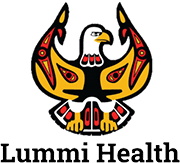Harm reduction is…
- A set of practical strategies and ideas aimed at reducing negative consequences associated with drug use
- A movement for social justice built on a belief in, and respect for, the rights of people who use drugs
- Personal agency in decision making, autonomy and dignity
When/Why did it start?
In 2012, it was discovered that about 40% of new Hepatitis C cases in Whatcom County were Native American/Alaska Native. This illuminated an urgent health disparity that needed to be addressed. So, in an effort to prevent and decrease transmission and acquisition of blood borne infection, a needle exchange program was founded by several clinic employees in 2013 which successfully exchanged 3,420 needles, however, the program came to a halt during its first year. There were growing pains and concerns around privacy for people accessing services in that year. The program was revamped in 2015, taking into consideration the input from community members accessing the service. The name changed to Primary Integrated Care Syringe Service Program (or PICSSP) which is more fitting because now clients enter the clinic through the same doors as every other patient and is seen by a trained individual in a private room. The harm reduction program is open to anyone. We believe people who use drugs still deserve access to care.
Since those modifications in 2015, we have operated our syringe service program as a separate entity within the primary care clinic, formally called the Primary Care Integrated SSP (PICSSP). We are able to operate our SSP while simultaneously working with providers toward our micro Elimination of HCV. This SSP model and structure is unique in that it allows us to also operate as a networking hub (a low barrier threshold point) for our clients to access provider care and specialty referrals.
What we offer
Our fixed site needle exchange program which started in 2013 Offers:
Supplies
- Sterile needles, sharps containers, alcohol swabs and more
Education
- Safer injection tips, disease prevention, overdose response
Testing
- Hepatitis C, HIV, sexually transmitted infections
Safe disposal
- For used points/needles so they do not end up in the community
- Access to healthcare providers
- Abscess and wound care, medication assisted treatment
- Hepatitis C treatment and case management

